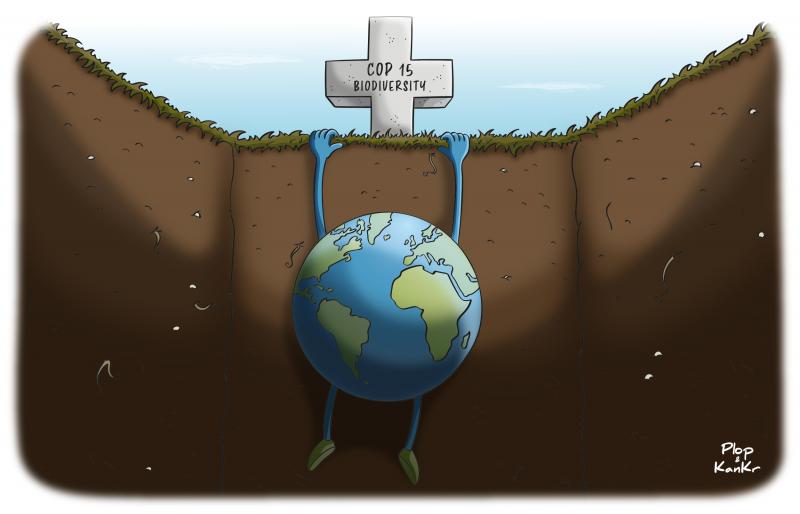Protected areas cover more than one quarter of European land, largely as part of the European Union's Natura 2000 network. New proposals aim to expand this coverage, but experts are divided when it comes to the “biodiversity economy”.
WWF and the World Economic Forum have urged world leaders to adopt mandatory requirements to disclose impacts on biodiversity by 2030 with a “Business for Nature” campaign. Meanwhile, over 110 experts from academia and civil society have signed an open letter rejecting this "nature-positive economy".
“Behind this innocuous sounding name lies a push to ‘financialise’ the destruction of biodiversity via meaningless monetary valuations of ecosystem services and biodiversity offsetting,” said Frederic Hache, founder of the Green Finance Observatory and one of the letter’s signatories.
In their view, the philosophical debate around nature’s value, the legacy of an imperialist approach to ecosystems, has become an economic one.
According to the signatories, the nature-positive agenda “promotes a meaningless monetary valuation of nature” and results in “biodiversity offsetting”. Offsetting, however, is “often unlikely to be feasible within reasonable timeframes or [is] prohibitively costly [... It] is not about curbing destruction, at best displac[ing] it”. Furthermore, it “has also been found to often result in land-grabbing [and] conflicts over land use and human rights abuse”, and “could transfer critical conservation decisions for our future to financial markets and their well-known irrational mood swings”, they write.
“While there are only six greenhouse gases, there are millions of species with incredibly complex webs of interdependencies”, they say. These critics fear a new episode of what happened with carbon markets 15 years ago.
Carbon-offset credits may never be a good solution to the problem they address, says Hache. That is because – quoting the former chair of the Australian carbon markets regulator Andrew Macintosh – "the minute you fix integrity, prices will go through the roof”. “Biodiversity offsetting has been shown to have worse environmental integrity issues than carbon offsetting, while creating the same risks of land-grabbing and conflicts over land use.”
The letter calls on the EU Commission to “instead put in place tighter environmental regulations mandating a reduction in biodiversity destruction” ahead of this week’s COP15 UN summit in Montreal.
The EU strategy
As part of its new Biodiversity strategy, the European Commission adopted a proposal for a Nature Restoration Law last June.
This should help achieve the following binding targets:
- restore habitats and species protected by the EU nature legislation;
- reverse the decline of pollinators by 2030;
- no net loss of green urban spaces by 2030 and a minimum of 10% tree canopy cover in European cities;
- improved biodiversity on farmland e.g. for grassland butterflies, farmland birds, high-diversity landscape features;
- restore drained peatlands;
- healthier forests with improved biodiversity;
- at least 25,000 km free-flowing rivers by 2030;
- restore seagrasses and sea bottoms.
A fact sheet presenting the law pointed out that “every 1 euro invested into nature restoration adds €8 to €38 in benefits”.












